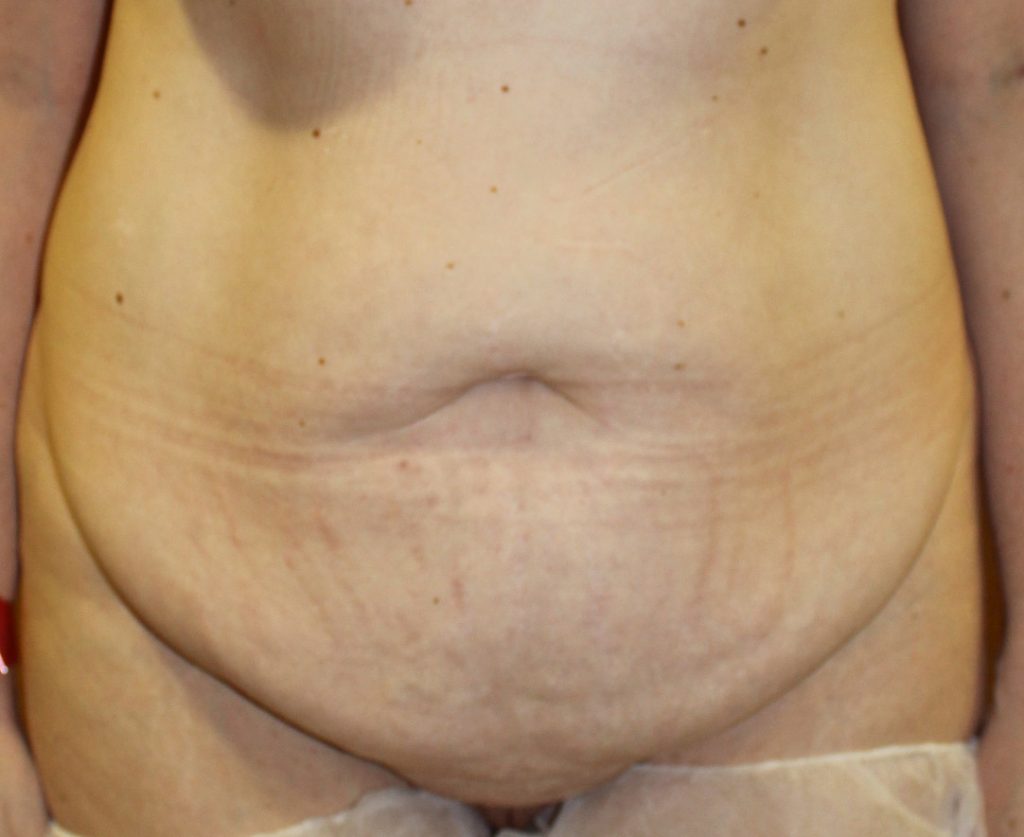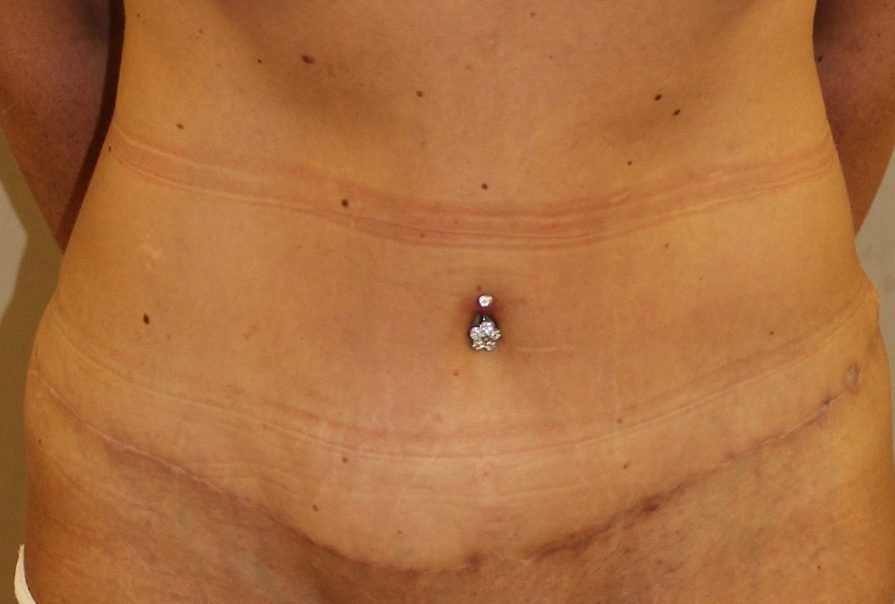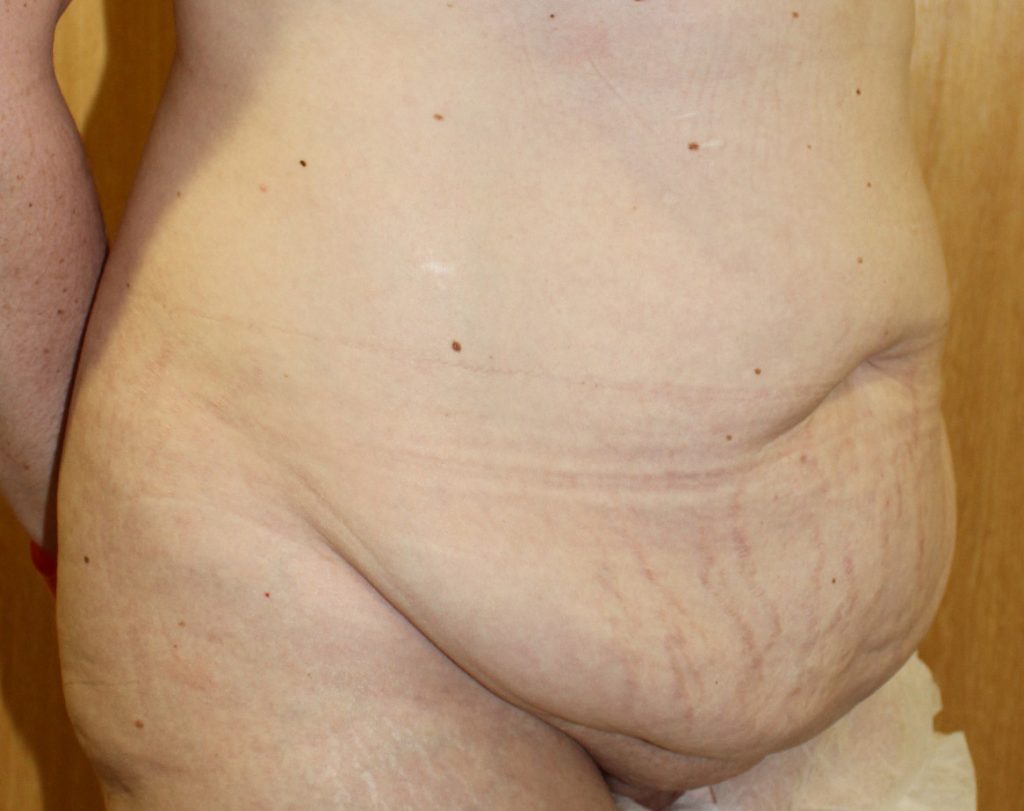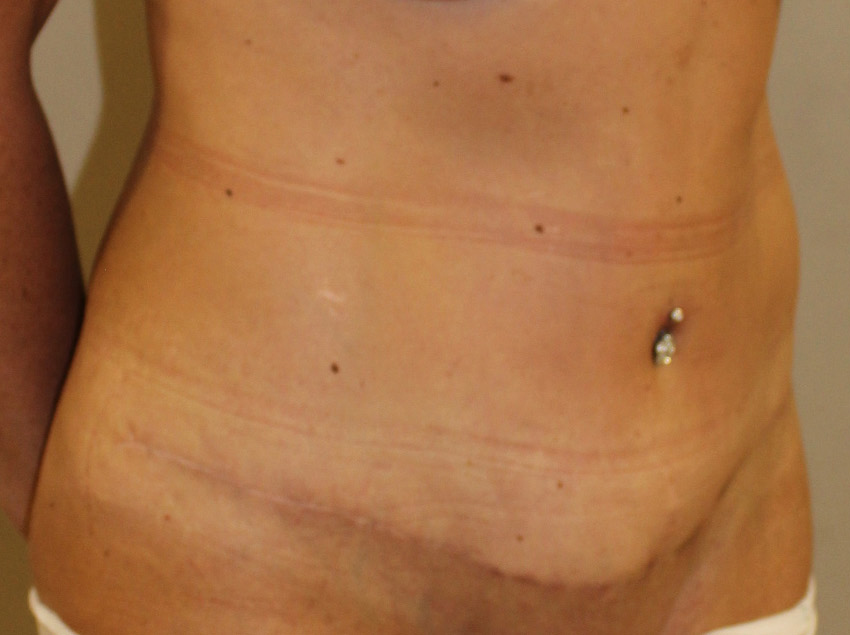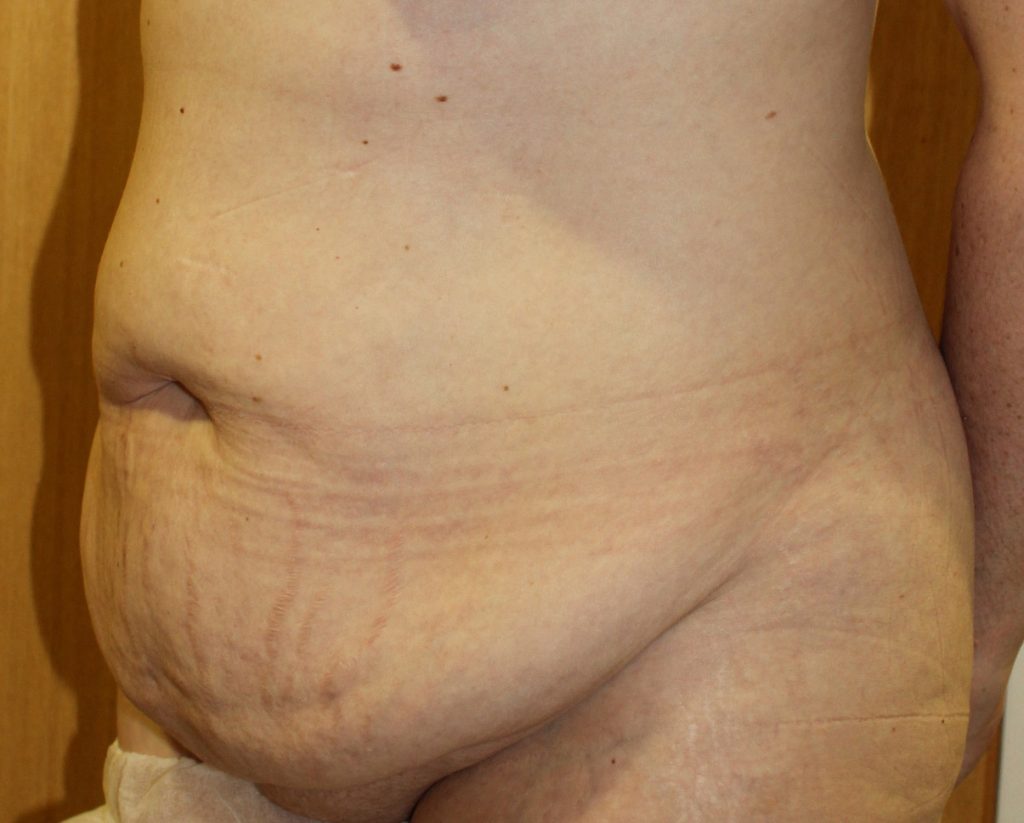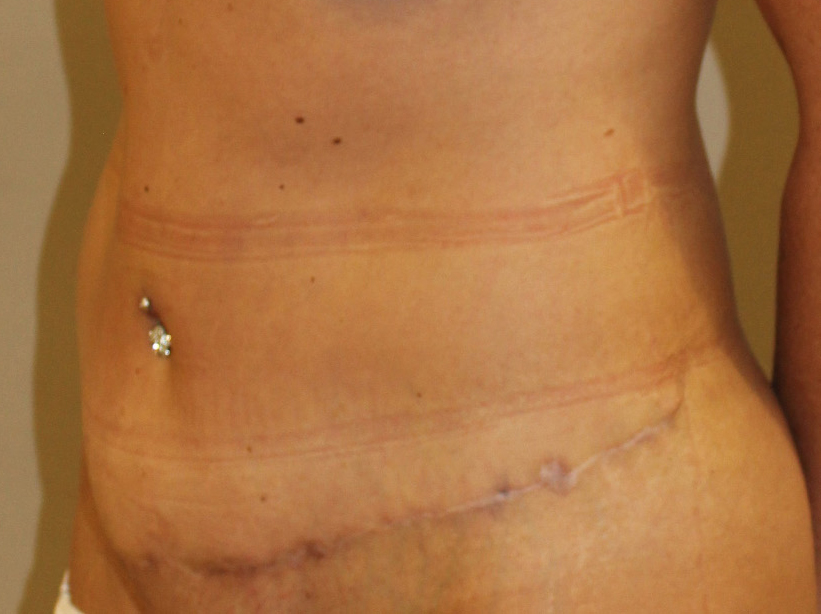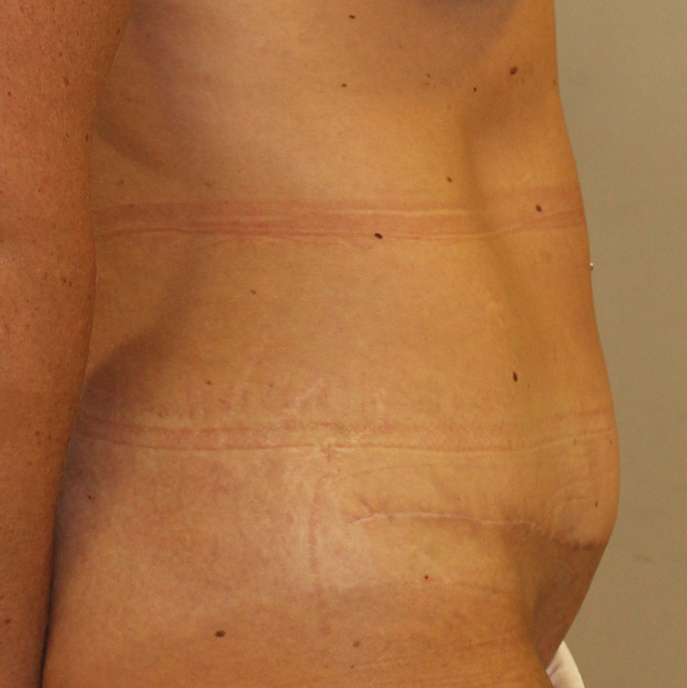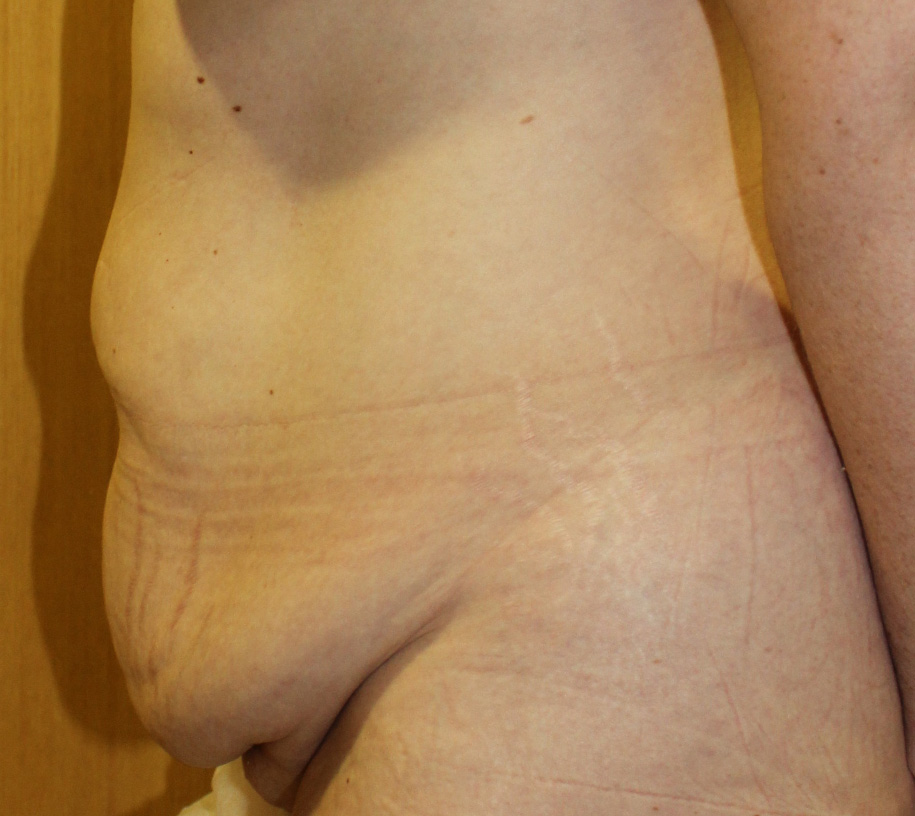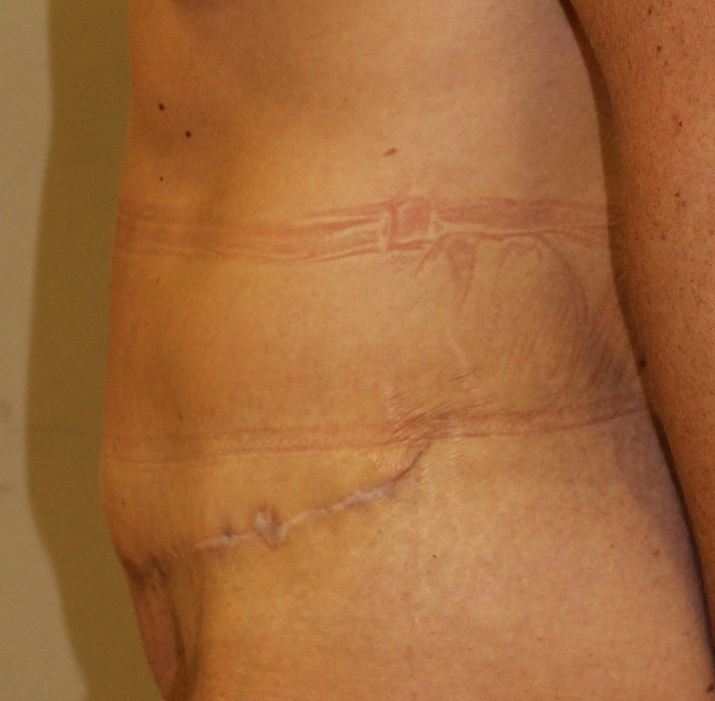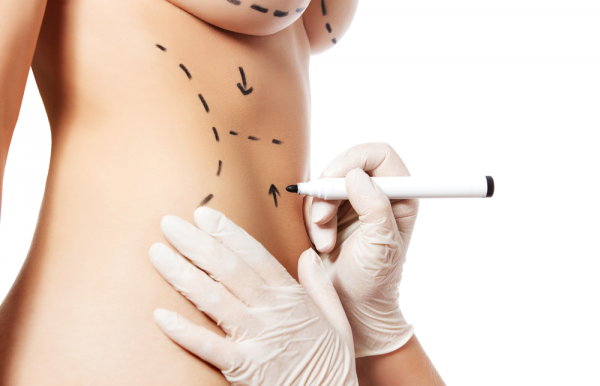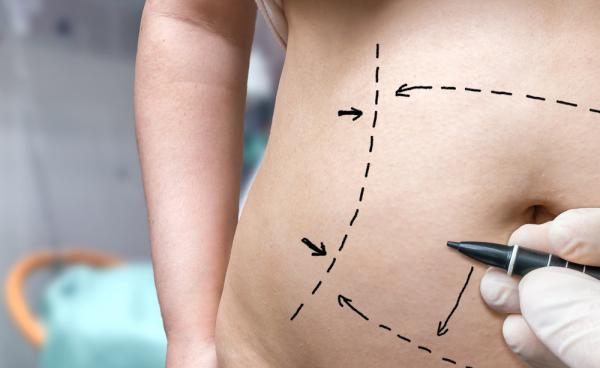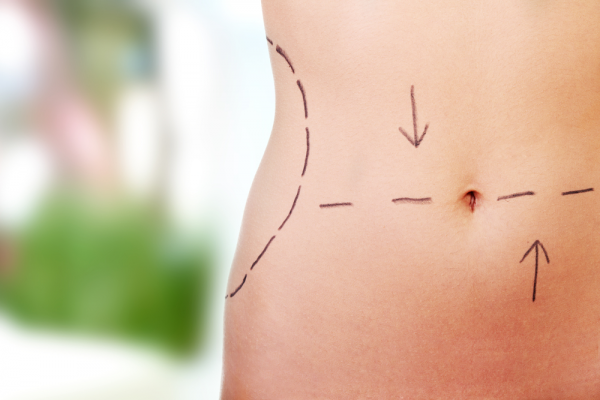Abdominoplasty in Manchester
UK Aesthetic offers some of the best cosmetic surgeons in Manchester. Our state-of-the-art facilities also assure you that your abdominoplasty is of the highest quality. Below you can learn more about the procedure, see abdominoplasty case studies performed in Manchester, and find some of the answers to our frequently asked questions.
What is Abdominoplasty Surgery?
The aim of abdominoplasty surgery is to remove excess skin tissue or fat from the abdomen area to make it appear tighter and show more visible abdomen muscles. This can be a rather common procedure for women who have gone through sudden weight gain or pregnancy. During pregnancy or weight gain, the abdominal wall in the muscles tends to pull apart. Abdominoplasty surgery can help to restore the walls and ‘tighten’ them. Abdominal wall reconstruction surgery is an alternative that can also be discussed with your surgeon.
Case Studies
What Should I Do Before Surgery?
Before you proceed with surgery, you will be required to attend a consultation where we can discuss what you wish to achieve from the surgery. This is also where you can advise us of any illnesses or issues you may have which may affect the results of the procedure. This will include noting down any medications that aren’t prescribed by your doctor. A consultation will allow us to determine if you’re in good health to go through with the abdominoplasty surgery, which is why it’s important that you’re completely honest during the consultation. There are also specific precautions that you should take:
– Aim to be at a stable weight before the surgery
– Avoid the contraceptive pill around 4-6 weeks before surgery
– Stop smoking 6 weeks before the surgery
– Bathe/shower before the operation so the area is clean
– Don’t shave or wax the area that’s being operated on 7 days before the surgery
You should consider whether having this operation is right for you if you’re still planning to have children as pregnancy can also affect the results of this.
How Is Abdominoplasty Surgery Performed?
During the surgery, you will be under general anaesthetic. There are typically 4 forms of abdominoplasty surgery that can be conducted:
- Tummy tuck procedure
- Mini Tummy Tuck Procedure
- Fleur De Lis Tummy Tuck
- Abdominal Wall Reconstruction
After your surgeon has had a consultation with you and learnt about your expectations, they can advise of which surgery is best for you.
Full Abdominoplasty
This is relatively common for patients and involves making an incision across the stomach and around the belly button. Above the belly button, the excess fat and skin are removed. The skin is then tightened around these areas and stitched up to show a more aesthetically pleasing appearance of the abdomen muscles.
Mini Tummy Tuck
A mini tummy tuck is when there is less skin tissue removed near the lower stomach. An incision is placed just above the pubic region and it’s here where the fat and tissue is removed. Once the excess tissue and fat is removed, the incision is then stitched up with dissolvable stitches. This will provide a different result to a full/standard abdominoplasty.
Fleur Des Lis Abdominoplasty
This abdominoplasty surgery involves removing skin tissue from the upper and lower parts of the stomach. In this case, the incision is made horizontally on the stomach as well as across it to move the relevant tissue. The same removal of skin tissue and fat applies and the incisions are then stitched up with dissolvable stitches.
Abdominal Wall Reconstruction
Abdominal wall reconstruction focuses more on the repair of the abdominal wall and is a combination of the above surgeries.
Deciding which procedure would be the best for you will be discussed during your consultation.
What Happens After The Abdominoplasty Surgery?
An abdominoplasty surgery can take up to 3 hours. After the surgery, you’d expect to feel some discomfort and swelling so you’ll be taken to the ward where you can rest and mobilise again. If you feel signs of discomfort, anaesthesia will be provided to numb the pain. It is advised that you make arrangements to be picked up from the hospital and looked after at home for up to around 2 weeks. Depending on your career, it’s also advised you take 2 weeks leave from work too. During the time, you’ll likely see changes to the appearance of the abdominoplasty scars and skin as it starts to recover.
Abdominoplasty Surgery Aftercare
It’s important that you follow the aftercare advice from the surgeon, which includes:
- Avoid strenuous activity for up to two weeks
- Begin light exercises before returning to normal exercise for around 6 weeks
- Avoid heavy lifting
- Don’t drive a vehicle until you feel comfortable enough to wear a seatbelt
- Keep the wounds as dry as possible
A support garment is also advised which should be worn at least up to 4 weeks after the operation. You should also look to avoid weight gain where possible. Aftercare will also be scheduled by your surgeon to assure that your stomach is healing correctly.
Abdominoplasty Risks and Complications
Every surgery comes with risks and complications and it’s essential that you learn about them before committing to an abdominoplasty. While the majority of UK Aesthetic patients are pleased with there abdominoplasty results, here are some of the common complaint that can occur:
- Numbness
- Bruising
- Swelling around the scar line
- A slight difference between the two sides of the stomach
- A small amount of discharge from the incision area is common and not harmful
The uncommon complications are more severe and include:
- Infection
- Haematoma
- Delayed healing/ skin necrosis/ skin loss,
- Seroma formation
- Thickened abdominoplasty scar
The general anaesthesia also has risks and it’s essential to answer all questions honestly before your surgery, as it can affect the outcome. Risks from anaesthesia include: respiratory/ cardiac compromise and deep vein thrombosis.
Abdominoplasty FAQs
Is Abdominoplasty Surgery Safe?
The majority of patients are happy with the results of the surgery, but there are occasions where complications occur for some patients. There are some complications that you should aware, including:
- Scars: Incisions will be made to remove the excess fat which means that scarring will occur. The scars that you have will be dependent on the surgery that you have but they tend to be visible for about 18 months after surgery.
- Swelling/Bruising: Swelling and bruising will be felt and this will take time to settle.
- Bleeding: This is rare but it can still occur. It’s important to maintain good blood pressure levels to prevent the risk of bleeding.
- Long Term Healing: This is also rare but on some occasions, a patient can have a longer healing period. Dressing the wounds and having good aftercare is essential for speedy recovery.
- Changes Over Time: You can prevent changes in the results occurring by maintaining good body weight, but ageing can also interfere with the results over time.
What Results Should I Expect?
Most patients are extremely happy with the results of the surgery, with a tighter feeling in your abdominal muscles. At first, there can be an odd sensation but this will heal over time, normally after about 6 weeks after the abdominoplasty surgery. You can explore our abdominoplasty case studies to see the results from the surgeries.
Are There Any Alternative Treatments?
There are alternative treatments that can be had over an abdominoplasty treatment. Liposuction is another form of procedure that can reduce fat and skin tissue. This can be performed on its own or combined with a tummy tuck. It’s best to schedule a consultation with one of UK Aesthetics abdominal surgeons to find out what treatment is best for you.
How Much Will The Procedure Cost?
This will be dependent on the type of surgery that you have and how much tissue is required to be removed. The price will be discussed during your consultation and the cost will also include fees for anaesthetics, surgeons and hospital fees.
Who Is Abdominoplasty Surgery Suitable For?
A patient would be suitable for abdominoplasty surgery if they:
- Have weight loss from dramatic weight loss
- Have skin that has been stretched from pregnancy
- Have abdominal scarring from previous surgery
- Are combining with another form of surgery
Who isn’t suitable for an Abdominoplasty?
A patient wouldn’t be ideal for the procedure if they:
- Have an excessive medical record
- Smoke heavily
- Are extremely overweight
- Have had a previous abdominal surgery
